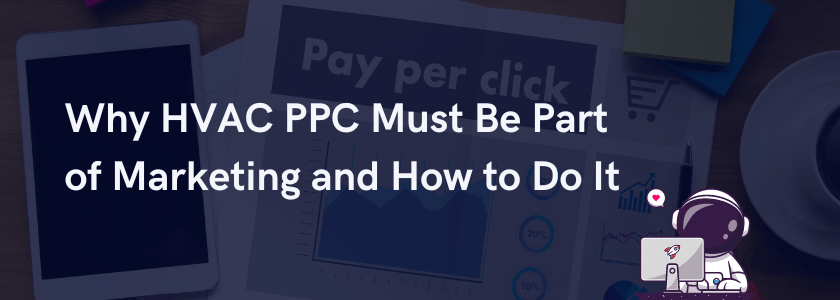Ignoring search engine optimization (SEO) is one thing contractors can’t afford, especially in 2025. With more homeowners turning to search engines to find services and Google’s algorithms getting smarter, ranking high has become essential for staying competitive. Whether you’re a general contractor, electrician, or roofer, SEO for contractors is the key to getting more leads, jobs, and revenue.
But SEO isn’t what it used to be, and old techniques are no longer as effective. If your website isn’t optimized for the latest standards, you’re losing business to competitors who are.
In this guide, we’ll share SEO strategies that are working right now, from AI-driven search updates to voice search optimization and next-level local SEO. Towards the end, you’ll have a clear, step-by-step plan to:
- Rank higher in 2025 search results (even against big competitors)
- Turn clicks into customers with optimized content and service pages
- Avoid costly mistakes that waste time and budget
Let’s dive in!
How SEO for Contractors Has Changed
The digital landscape for contractors has shifted dramatically in recent years. What worked two years ago might now hurt your rankings. Google’s updates in 2025 demand more innovative strategies that align with how people search today:
The Rise of AI and Focus on Search Intent
Google now leans on artificial intelligence (AI) to interpret search queries. This means simply optimizing for keywords isn’t enough. Instead, your contractor SEO strategy should focus on search intent, or in other words, answering questions before they’re even fully asked.
For example, roofing contractors shouldn’t just target “roof repair near me” but also create content around “how to spot storm damage” or “what to ask before hiring a roofer,” as search engines reward pages that provide complete, trustworthy answers.
Local SEO for Contractors Got More Competitive
As more service businesses move online, standing out in local SEO for contractors has become harder. Google now puts more weight on proximity, relevance, and reputation when deciding which businesses to show.
If your Google Business Profile (GBP) isn’t fully optimized with high-quality images, recent posts, and verified customer reviews, you’re likely losing leads to other companies that have kept up. Even small details, like ensuring your service area matches your target neighborhoods, can make or break your visibility.
Expertise Holds More Weight
Google’s E-E-A-T (Experience, Expertise, Authoritativeness, Trustworthiness) guidelines now play an even greater role in rankings. This means contractors must prove their credibility.
Ask any contractor SEO expert, and you will get this advice: Showcase licenses, certifications, and case studies prominently on your website. Testimonials alone aren’t enough since Google wants proof of your work, such as project photos with detailed descriptions or video reviews from your clients.
Voice Search is Changing the Game
More homeowners use voice assistants to find services. This shift means the contractor SEO services in your employ must adapt to conversational queries. Instead of the usual “plumber Florida”, people may now ask, “Who fixes burst pipes fast near me?” Optimizing for natural language and ensuring your business information is consistent across directories helps you capture these searches.
As you can see, SEO in 2025 requires a proactive approach. It’s not just about having a website; the focus is now on ensuring every element, from technical performance to customer trust signals, works together.
Foundational SEO for Contractors
SEO success starts with a rock-solid foundation. For contractors, this requires optimizing the technical aspects of your website while ensuring every part aligns with Google’s latest requirements. Without the following fundamental elements, even the best content won’t rank:
Technical SEO
Google prioritizes fast, secure, and mobile-friendly websites. If your webpages take more than two seconds to load, you’re likely losing visitors and rankings.
Start by auditing your site’s Core Web Vitals — Google’s key performance metrics. SEO tools like PageSpeed Insights or Lighthouse can pinpoint issues like slow server response times or oversized images.
Mobile optimization is another process that is no longer optional. With over 60% of contractor searches happening on mobile devices, your site must be fully responsive. Check for issues like unclickable buttons, distorted images, or texts too small to read.
Keyword Research
Gone are the days of guessing which keywords to target. Modern SEO for contractors relies on data-driven research. Tools like Ahrefs or SEMrush can uncover high-intent phrases like “emergency electrician in [city]” or “cost to remodel a small bathroom 2025.”
Focus on long-tail keywords to attract qualified leads. For example, “best residential roofing company for flat roofs in Miami” may have lower search volume than “roofing contractor,” but it signals strong buyer intent.
Local SEO
For local SEO for contractors, your Google Business Profile is just as important as your website. In 2025, Google’s algorithms will favor businesses that consistently update their business profile with accurate information, posts, and engage with customer reviews.
Start by verifying your GBP and ensuring your:
- (Business) name, address, and phone number (NAP) are 100% accurate
- Service areas match where you actually work
- Hours of operation are up to date (including holiday hours)
- Photos show your best work (Google prioritizes businesses with fresh, high-quality images)
Posting regular updates, like job completions, promotions, or before-and-after project photos, can also boost your visibility.
On-Page SEO
Make sure to optimize your service pages. Everyone should be structured for both users and search engines. Include your target keyword in:
- The page title (H1)
- URL slug
- Meta description
- At least one subheading (H2 or H3)
But don’t stuff keywords—write naturally. Google’s AI can detect awkward phrasing, so focus on clarity. For example, a plumbing page might include: “Our licensed plumbers handle everything from leak repairs to full bathroom remodels. Serving [city] since 2010 with 24/7 emergency service.”
Adding schema markup (structured data) helps Google understand your services better, increasing chances for rich snippets in search results.
Local SEO for Contractors: Strategies to Implement in 2025
Nearly 90% of customers search for local services before making contact, and Google’s 2025 updates have made local rankings more competitive than ever. Here’s how to stand out:
Hyper-Local Content
Google favors businesses that demonstrate deep local expertise. Instead of generic service pages, create content tailored to specific neighborhoods or cities you serve. For example:
- A plumber in Chicago could create pages like “Emergency Pipe Repair in Lincoln Park” or “Water Heater Installation Costs in Chicago (2025)”
- Include local landmarks, testimonials from area clients, and references to community events
This signals to search engines that you’re immersed in the area, not just another contractor casting a wide net.
Google Reviews and Reputation Management
Customer reviews now impact rankings more than ever. Contractors with a 4.5+ star average rank significantly higher in local searches. But in 2025, it’s not just about quantity:
- Video reviews carry more weight (encourage happy clients to record 30-second testimonials)
- Respond to every review if you can, because Google measures engagement
- Use keywords naturally in responses (“Thanks for trusting our electrical team with your home rewiring!”)
Avoid fake reviews and testimonials at all costs! Google’s AI detects suspicious patterns and penalizes businesses that attempt to game the system.
Voice Search Optimization
With 55% of households using voice assistants, optimizing for spoken queries is crucial. People don’t talk like they type. Instead of short keywords, they use full phrases or conversational requests, such as:
- “Who fixes garage door openers near me that work on weekends?“
- “Find a licensed asbestos removal company in Florida with 24-hour service.“
To rank for these searches:
- Create FAQ pages answering common questions verbatim
- Include natural phrases like “We offer same-day garage door repairs in [city]” throughout your site
- Claim profiles on Alexa Skills and Google Assistant directories
Local Link Building
Backlinks from local sources are gold for contracting businesses such as yours. Focus on:
- Local business associations (Chamber of Commerce, trade groups)
- Sponsorships (Little League teams, charity events with .edu/.gov backlinks)
- News features (Pitch local media on trends like “2025 Home Renovation Tax Credits in [City]“)
Pro Tip: Avoid low-quality directory sites. Google now devalues links from spammy platforms, so prioritize relevance over quantity.
Local Schema Markup
Adding structured data to your website helps Google display rich results like:
- Service area maps
- Price estimates (“$1,200–$2,500 for bathroom remodels“)
- Emergency service badges (“24/7 storm damage response“)
This can boost click-through rates by up to 30%. To implement it correctly, use Google’s Structured Data Markup Helper.
Your local SEO strategy for contractors should utilize a multi-pronged approach. By combining hyper-local content, voice search optimization, and strategic link building, you’ll outrank competitors who rely on outdated tactics.
Content & On-Page SEO for Contractors
Creating high-quality content does more than improve search rankings. For contractors, it also builds trust and helps turn website visitors into paying customers.
In 2025, Google will reward websites that provide genuine value while meeting strict technical standards. Here’s how to optimize your content for both search engines and real clients.
Why Content Quality Matters
Google’s 2025 “Helpful Content Update” penalizes thin, generic pages while boosting detailed, expert-driven content. For contractors, this means:
- Avoiding fluff–Homeowners searching for contractors want clear, actionable information, not vague marketing speak.
- Demonstrating expertise–Showcase your knowledge with step-by-step guides, case studies, or video explanations of complex projects.
- Updating old content–A blog post from 2020 about “kitchen remodeling trends” won’t rank if it doesn’t reflect current costs, materials, or design preferences.
Pro Tip: A contractor SEO expert can audit your existing content and identify gaps where competitors are outperforming you.
Optimizing Service Pages to Maximize Conversions
Your service pages (e.g., “Roofing Services in Fort Lauderdale“) should be structured to answer key customer questions while naturally incorporating keywords. Best practices include:
- Clear, benefit-driven headlines–Instead of “Our Plumbing Services,” try “24/7 Emergency Plumbing Repairs – Fixed Fast, Guaranteed.“
- Before/after project galleries – Images with alt text like “bathroom remodel in Boca Raton by [Your Company]” improve rankings and trust.
- FAQ sections – Answer common queries like “How much does a new HVAC system cost in 2025?” to capture voice search traffic.
Pro Tip: The best SEO services for contractor businesses use heatmaps and A/B testing to refine page layouts, ensuring visitors easily find contact forms or call buttons.
Blogging for Contractors: What Works in 2025
A well-planned blog can attract high-intent leads, but only if you focus on topics that matter to your audience. Effective ideas include:
- Cost guides – “2025 Average Cost to Replace a Roof in Florida (Materials + Labor)“
- Problem/solution posts – “Why Is My Circuit Breaker Tripping? 5 Common Causes“
- Seasonal maintenance tips – “Preparing Your Plumbing for Winter: A Homeowner’s Checklist“
Each post should link back to relevant service pages (e.g., an article on “Signs You Need a Foundation Repair” should link to your foundation services).
Video SEO
YouTube is now the second-largest search engine, and Google prioritizes video results. Contractors can leverage this by:
- Creating short (1–2 minute) project walkthroughs (“How We Installed This Custom Patio in 3 Days“)
- Posting client testimonial videos with keywords in titles (“Best Kitchen Remodeling Company in Florida – Customer Review“)
- Embedding videos on service pages to increase dwell time (a key ranking factor)
On-Page Fixes You Can’t Ignore
Even great content won’t rank without proper on-page SEO:
- Internal linking–Connect related pages (e.g., link “bathroom remodeling” blog posts to your “bathroom renovation services” page).
- Mobile-first indexing–Test all pages on multiple devices to ensure fast loading and readability.
- Schema markup–Add structured data for services, reviews, and business hours to enhance rich snippets.
Link-Building for Contractors in 2025
Strong backlinks remain one of the most powerful ranking factors for contractors, but in 2025, not all links are created equal. Google now prioritizes relevance and authority over quantity, meaning your contractor SEO services need a strategic approach. Here’s how to build links that actually move the needle:
Why Traditional Link Building Fails This Time
Old tactics like directory submissions or buying links no longer work and can trigger penalties. Google’s AI now detects:
- Irrelevant links (e.g., a roofing company featured on a diet blog)
- Over-optimized anchor text (excessive exact-match keywords like “best HVAC contractor in Miami“)
- Spammy guest posts (low-quality sites with no real traffic)
Instead, focus on earning links from sources that homeowners and major search engines trust.
Best Link Sources for Contractors in 2025
- Local Business Partnerships
- Trade associations (e.g., National Association of Home Builders)
- Supplier websites (e.g., a plumbing supplier linking to your “2025 Pipe Material Guide“)
- Community sponsorships (local sports teams, charity events with .org backlinks)
- Digital PR for Contractors
- Pitch local news outlets on trends like:
- “2025 Home Renovation Tax Credits in [City]”
- “Why [Your City] Homes Need Foundation Repairs After Record Rainfall“
- Secure interviews or quotes as an industry expert
- Competitor Backlink Analysis
You can use tools like Ahrefs to:
- Find where competitors are getting links
- Identify unlinked mentions of your business (then ask for links)
Content That Naturally Attracts Links
Develop resources that other sites want to reference, such as:
- Neighborhood guides (“2025 Home Value Report: [City] Zip Codes With Highest ROI“)
- Cost calculators (e.g., “Instant Deck Building Cost Estimator“)
- Safety/regulation explainers (“New 2025 Electrical Code Changes for Homeowners“)
Pro Tip: A contractor SEO expert can help you identify high-impact content ideas based on your specialty.
Avoiding Links that Hurt Rankings
Regularly audit your backlink profile using Google Search Console. Disavow:
- Links from spammy directories
- Sites with irrelevant content (e.g., gambling, adult)
- Overly aggressive exact-match anchor text
While some link building can be done DIY, the best SEO services for contractor businesses often have established relationships with media and industry sites.
Contractor SEO Expert: What to Look for When Hiring
Finding the right contractor SEO expert can mean the difference between dominating local search results and wasting thousands on ineffective strategies. With so many agencies claiming to offer the best SEO services for contractor businesses, here’s how to separate real professionals from snake oil salespeople:
Red Flags to Watch Out For
- “Guaranteed #1 Rankings” Promises
No ethical provider can guarantee rankings since Google’s algorithm changes constantly. Legitimate experts will discuss realistic timelines (typically 3-6 months for measurable results).
- Overemphasis on Technical Jargon
While terms like “schema markup” matter, a reliable contractor digital marketing agency chooses to explain strategies to you in easy-to-understand verbiage and focus on business outcomes (calls, leads, jobs booked).
- No Case Studies or Client References
Demand concrete evidence of their past successes. Request before-and-after examples that clearly illustrate the following:
- Organic traffic growth
- Improved keyword rankings
- Actual client ROI
For instance, a reputable agency should be able to say, “Our work resulted in a 40% increase in organic leads for a plumbing contractor in Florida within six months,” or “We helped a local electrician in Michigan achieve a 25% boost in website traffic and a 15% increase in service inquiries.”
Must-Ask Questions Before Hiring
- “How will you adapt to Google’s 2025 Core Updates?”
Look for answers mentioning:
- Regular algorithm monitoring
- Content strategy adjustments
- Focus on EEAT (Expertise, Experience, Authority, Trust)
- “What’s your approach to local SEO for Contractors?”
The right answer includes:
- Google Business Profile optimization
- Local citation management
- Review lead generation strategies
- “Can you show examples of contractor clients in my specialty?”
SEO for contractors—electricians, plumbers, and roofers requires tailored strategies. Generic SEO experience is insufficient. Each trade has unique keywords, target audiences, and local search nuances that demand a specialized approach for effective results and higher rankings.
- “What type of reporting will I receive?”
Monthly reports from your contractor SEO service provider should detail shifts in keyword rankings, analyze the origins of website traffic, and meticulously track key performance indicators such as leads generated and conversion rates achieved.
- “What’s included in your pricing?”
Transparent providers offer clear pricing details, including the specific number of content pieces they will create, the extent of their link-building activities, and the total hours dedicated to website optimization. This detailed breakdown ensures you understand exactly what services you will receive for your investment and fosters trust and accountability.
DIY vs. Professional SEO
Contractors often wonder if they can handle SEO themselves. While DIY is possible, especially for small businesses with limited budgets, consider the time commitment and the learning curve. SEO in 2025 is complex, requiring ongoing adaptation to algorithm updates and significant time for research, implementation, and analysis.
DIY SEO might be suitable if:
- You have a strong understanding of digital marketing basics.
- Your local competition is not very strong.
- You have ample time to dedicate consistently to SEO tasks.
- Your budget is limited.
However, DIY efforts often lack the expertise and tools needed to achieve significant results, potentially leading to wasted time and missed opportunities.
Hiring a professional contractor SEO expert is generally recommended if:
- You want to see faster, more significant results.
- Your competition is fierce.
- You lack the time or expertise to manage SEO effectively.
- You need a customized strategy based on your specific business goals.
- You want to avoid costly mistakes that can harm your rankings.
The best approach depends on your unique circumstances. Carefully weigh the costs and benefits of DIY versus professional help to make an informed decision that aligns with your business objectives.
Important Factor to Consider: The best SEO services for contractor businesses typically cost $1,000−$3,000/month for measurable results in competitive markets.
Measuring Contractor SEO Success in 2025
As a business owner investing in SEO services, tracking the right metrics will help you distinguish real growth from vanity numbers. In 2025, forward-thinking contractors focus on these performance indicators:
- Traffic that Converts
Organic search visitors (tracked in Google Analytics) indicate how many users find your website through search engines. Monitoring page views per visit reveals how engaging your content is to these users. Ideally, the bounce rate on your service pages should be below 50%, signifying that visitors are finding what they need and are not leaving the page immediately.
Example: A plumbing company saw 200% more organic traffic after 6 months, but the real win was their 35% increase in contact form submissions.
- Local Search Visibility
Key metrics to track include rankings for 5-10 relevant “near me” search phrases, the number of views your GBP receives within its dashboard, and whether your business appears in the map pack for relevant local searches, such as “electrician near me.”
Pro Tip: Use tools like BrightLocal to monitor local ranking changes per month.
- Lead Quality and Customer Value
You can determine lead quality and customer value by:
- Tracking phone calls originating from organic search using call tracking numbers
- Implementing proper tagging for form submissions to identify their source
- Calculating the average job value derived from SEO leads and comparing it to the value of leads from your PPC campaigns
Case Study Example: An HVAC contractor discovered their SEO leads converted 28% better than paid ads, with 15% higher average ticket values.
- Technical Health Signals
Tracking technical health scores is crucial for measuring contract SEO success, particularly Core Web Vitals scores, especially for mobile. Monitoring the count of indexed pages is also important, as sudden drops can indicate underlying issues. Last but not least, analyzing click-through rates data from Google Search Console provides valuable insights into how well your website performs in search results.
Pro Tip: 63% of contractor sites fail mobile usability tests – fix this first!
- Authority Growth
You can measure authority growth by observing an increase in your Domain Rating (as reported by tools like Ahrefs and SEMrush), quality backlinks acquired (focusing on .gov, .edu, and local websites), and by noting an increase in branded searches, which indicates more people are specifically searching for your company name.
The 2025 Contractor SEO Scorecard
| Metric | Baseline | 3-Month Goal | 6-Month Goal |
| Organic Traffic | 500/month | +30% | +75% |
| Top 3 Rankings | 5 phrases | 8 phrases | 15 phrases |
| GBP Calls | 10/month | 15/month | 25/month |
| Lead Conversion | 8% | 12% | 15% |
When to Adjust Your SEO Strategy
It’s important to monitor your SEO performance and be ready to adjust your strategy when needed. Here are key situations that warrant changes:
- Rankings Plateau: If your rankings remain stagnant for 90 days or more, it’s a clear sign your current approach isn’t yielding further improvements. This could indicate a need for fresh content, stronger backlinks, or technical SEO fixes.
- Algorithm Updates: Track industry news to stay informed about Google’s algorithm updates. Significant updates often impact rankings. Analyze your site’s performance post-update and adjust your strategy to align with new guidelines.
- Lead Quality Declines: Even with increased traffic, a drop in lead quality signals a mismatch between the visitors you’re attracting and your ideal customers. Re-evaluate your targeting, content, and keywords to ensure you’re attracting relevant leads that convert.
Pro Tip: Reliable contractor SEO service providers have transparent dashboards showing these metrics in real-time.
Key Takeaways
The right SEO strategy can flood your business with high-quality leads, but only if you implement the 2025 SEO for contractors strategies we’ve covered. From dominating local search to leveraging AI and voice search, businesses that adapt now will:
- Outrank competitors amidst Google’s evolving algorithms
- Generate more calls and quotes from qualified leads
- Build long-term growth without relying on expensive ads
Don’t let outdated SEO tactics hold you back. If you’re ready to:
- Get found by more local homeowners
- Turn your website into a 24/7 lead generator
- Work with a proven contractor digital marketing agency
Schedule a consultation with us to analyze your current rankings, identify missed opportunities, and create a personalized plan to get you more jobs, not just more traffic. Claim your complimentary SEO assessment now!





